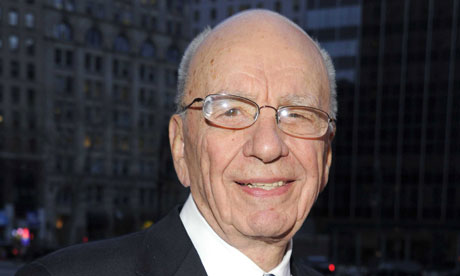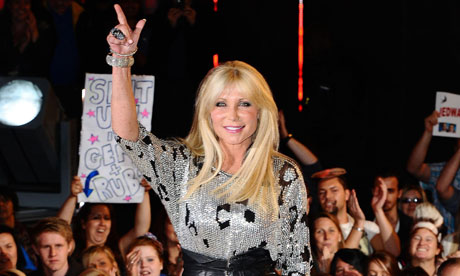Step two:
Theories, issues or debates | Topic covered | Book publication or online source | Key quotes |
Hegemony- Leadership or predominant influenced by one nation over others. (similar to Marxism) Issues: Facebook- was used during the Arab spring, as a way of communication, also during the London riots they used social networking to form bigger groups in which looted shops. News Corp-Rupert Murdoch create Moral Panic within Australia and audiences as they feared that he was taking over the news within that country. | New Technologies and the Audience. Social Networking. | “According to The Guardian , Scotland Yard has vowed to track down and arrest protesters who posted “really inflammatory, inaccurate” messages on the service, and the social networking web sites Twitter and Facebook.” “The simple idea of connecting people together into networks of friends sharing their personal details” | |
Marxism- The bourgeois being the elite social class, these are in control, whereas the lower class being the proletariat also known as followers are seen as strugglers to play central role. Issue: critique of capitalism- the capitalist society and the economic minority which are also known as the elite or bourgeois dominate the lower class and exploit the working class which are the proletariat minority. | Facebook’s Zuckerberg: “Having two identities for yourself is an example of a lack of integrity”- doing what he says in terms of using the question "what is on your mind" to allow you to tell others what is on your mind | ||
Pluralism- The state of civilisation in which numerous ethnic, racial or religious groups are able to participate in and develop their common cultures. This also consists of coming to a mutual agreement, or to be civilised. Arab spring- countries like Lybia uprising in order to get their country back, also forming groups on social networking as a way of working together in order to find some peace. | "Promoted as a system for the “common good” of all. It is a coming together" "Social networks are beginning to have a bigger role in building community and catalysing neighbourhood co-operation and social action." | ||
Cultural Imperialism- the use of political and economical power to spread the values and habits of foreign culture at the cost of an unexplored culture, also including colonialism and globalisation. Global Village- The world shrunk into a village by the means of the different media types, most especially the World Wide Web, making it easy to pass across messgaes (like the news), thereby making the world become like a single village where people can easily contact each other quicker | "Dominated by the ruling classes. Via this domination, he argued, the ruling classes would best be suited to perpetuate their stranglehold on power" Sherry Turkle"We make our technology, and our technology makes us." |
Step Three: Choosing individual topic area and relevant theorists
Write here what your case study will involve. Remember it should be about the impact of new and digital media on.......
My case study will involve me looking at new technology and audiences, and how it affects or influences people’s point of view on things that they see in the news and how it has an influence in general. This area in which I have chosen for my case study would fit in well with today’s media as it is a current topic in which most audiences are affected by.
Explain why you have chosen this topic and why you think this will be a rich area for study.
This topic will be a rich area for study because it’s contemporary and has an influence on the way we view what we see through the news, also today’s generation are very much involved with new technology I want to see how this affects audiences thoughout the media landscape.
Identify at least three media texts/ products that you will use as your primary sources of evidence to demonstrate the impact of new and digital media in your topic area.
The three texts/product that I will be using as my primary sources of evidence to demonstrate the impact of new and digital media are the following;
· Facebook- http://www.thehalsreport.com/2011/01/the-social-impact-of-facebook-in-2011/
http://hir.harvard.edu/will-facebook-remake-the-world
Facebook is allowing everyone to come together to share ideas, information and gives the chance for freedom of speech and to voice their own opinions. also allowing others to comment on these opinions through the use of a status.
IPhone, IPad- They offer access to a whole range of apps suiting everyones needs. allowing audiences to interact with the mass media.
http://hir.harvard.edu/will-facebook-remake-the-world
Facebook is allowing everyone to come together to share ideas, information and gives the chance for freedom of speech and to voice their own opinions. also allowing others to comment on these opinions through the use of a status.
IPhone, IPad- They offer access to a whole range of apps suiting everyones needs. allowing audiences to interact with the mass media.
·
Twitter- people posting tweets to news institutions forming citizen journalism, allowing news to told by audiences. this has an impact on institutions because it means that audiences are taking over the jobs of people who are journalists.
Twitter- people posting tweets to news institutions forming citizen journalism, allowing news to told by audiences. this has an impact on institutions because it means that audiences are taking over the jobs of people who are journalists.
List here the theorists you have identified in your research table above that you will need to refer to for your study:
The lists of theories that I will be using or referring to in my case study are the following;
·
Hegemony
Pluralism
Marxism
Cultural imperialism
global village- sherry turkle
Hegemony
Pluralism
Marxism
Cultural imperialism
global village- sherry turkle

